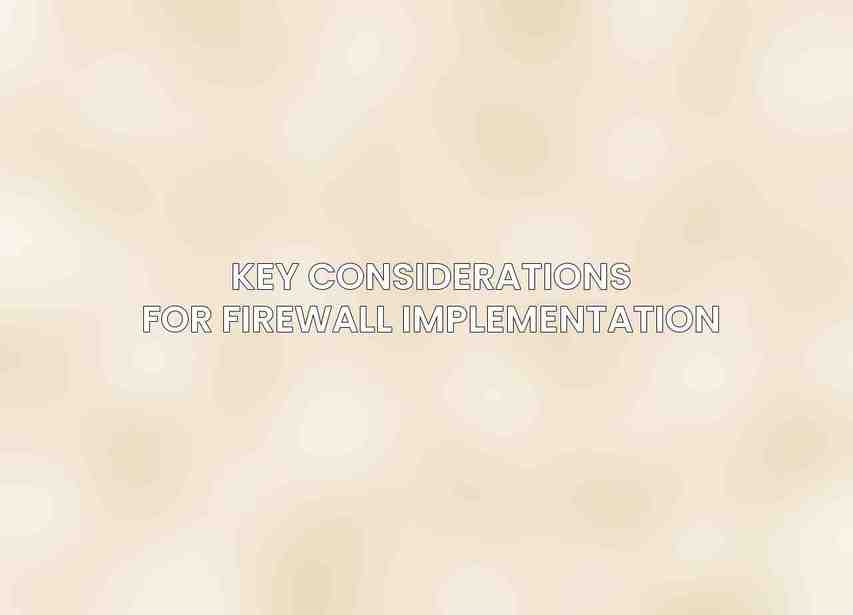The evolution of the e-commerce world has brought about significant advancements in technology and consumer convenience. However, this progress has also introduced new challenges in terms of cybersecurity. The growing threats to e-commerce websites have raised concerns about the security of sensitive customer data and the integrity of online transactions. In this environment, the implementation of website firewalls plays a critical role in enhancing security measures to safeguard e-commerce platforms from malicious attacks and breaches.
E-commerce Security Before Firewall Implementation
Before the implementation of website firewalls, e-commerce websites were exposed to various security vulnerabilities that made them susceptible to cyber threats. Common issues faced included:* Cross-site scripting (XSS)* SQL injection* DDoS attacks* Malware infections
These vulnerabilities not only compromised the security of the websites but also had severe consequences for e-commerce businesses. The impacts included the loss of customer data and trust, damage to reputation, and financial losses that resulted from breaches and cyberattacks.
Key Considerations for Firewall Implementation

When considering firewall implementation for e-commerce security, it is essential to understand the different types of website firewalls available, such as:1. Web Application Firewalls (WAFs)2. Network Firewalls
Furthermore, key features to look for in a firewall solution include web vulnerability scanning, real-time threat detection, content filtering, bot mitigation, and compliance with industry standards. These features are crucial for providing comprehensive protection against a wide range of cybersecurity threats. Dive deeper into Real-World Success Stories of Firewalls
Transformation after Firewall Implementation
The implementation of website firewalls leads to a transformative enhancement in e-commerce security by providing:* Enhanced protection against cybersecurity threats through the prevention of malicious traffic and attacks, as well as the detection and blocking of vulnerabilities.* Improved customer trust by ensuring secure transactions and safeguarding sensitive personal information.* Increased business resilience by mitigating risks and liabilities, as well as safeguarding revenue and brand reputation.
Case Studies of Successful Firewall Implementations

Example 1: E-commerce Retailer XYZ
The implementation of a Web Application Firewall (WAF) at E-commerce Retailer XYZ resulted in a remarkable 95% reduction in malicious traffic. This led to improved customer satisfaction and trust in the platform’s security measures.
Example 2: Payment Gateway Provider ABC
Payment Gateway Provider ABC deployed a network firewall that effectively protected against DDoS attacks, thereby mitigating financial losses and ensuring enhanced security for financial transactions and customer data.
Best Practices for Ongoing Security
To maintain robust e-commerce security after firewall implementation, it is crucial to adhere to best practices that include:* Regular firewall updates and patches to address emerging threats.* Continuous monitoring and leveraging threat intelligence to stay ahead of potential risks.* Customer education and awareness initiatives to promote safe online practices.* Collaboration with security experts and vendors to enhance security measures and respond effectively to evolving cyber threats.
the implementation of website firewalls marks a significant milestone in the transformation of e-commerce security. The benefits and impact of firewall implementation extend to enhancing protection, improving customer trust, and ensuring business resilience in the face of cyber threats. As e-commerce continues to evolve, maintaining an ongoing commitment to security and innovation is essential to safeguarding online businesses and the trust of consumers.
Frequently Asked Questions
What is e-commerce security?
E-commerce security refers to the measures taken to protect online transactions and sensitive customer information from cyber threats and unauthorized access.
Why is e-commerce security important?
E-commerce security is crucial to build trust with customers, protect sensitive data, prevent fraud, and comply with regulations such as the Payment Card Industry Data Security Standard (PCI DSS).
What is a firewall and how does it enhance e-commerce security?
A firewall is a network security system that monitors and controls incoming and outgoing network traffic based on predefined security rules. Implementing a firewall adds an extra layer of protection to e-commerce websites by blocking malicious traffic and potential cyber attacks.
What are the key security challenges faced by e-commerce websites before implementing a firewall?
Before implementing a firewall, e-commerce websites may face challenges such as vulnerability to DDoS attacks, data breaches, payment fraud, customer information theft, and unauthorized access to sensitive data. Get the scoop on our perspective regarding Firewalls in Action Against APTs
How does e-commerce security change before and after the implementation of a firewall?
Before implementing a firewall, e-commerce websites are more vulnerable to cyber threats and attacks. After the implementation of a firewall, there is enhanced protection against unauthorized access, data breaches, and other security risks, leading to a more secure online shopping environment for customers.

